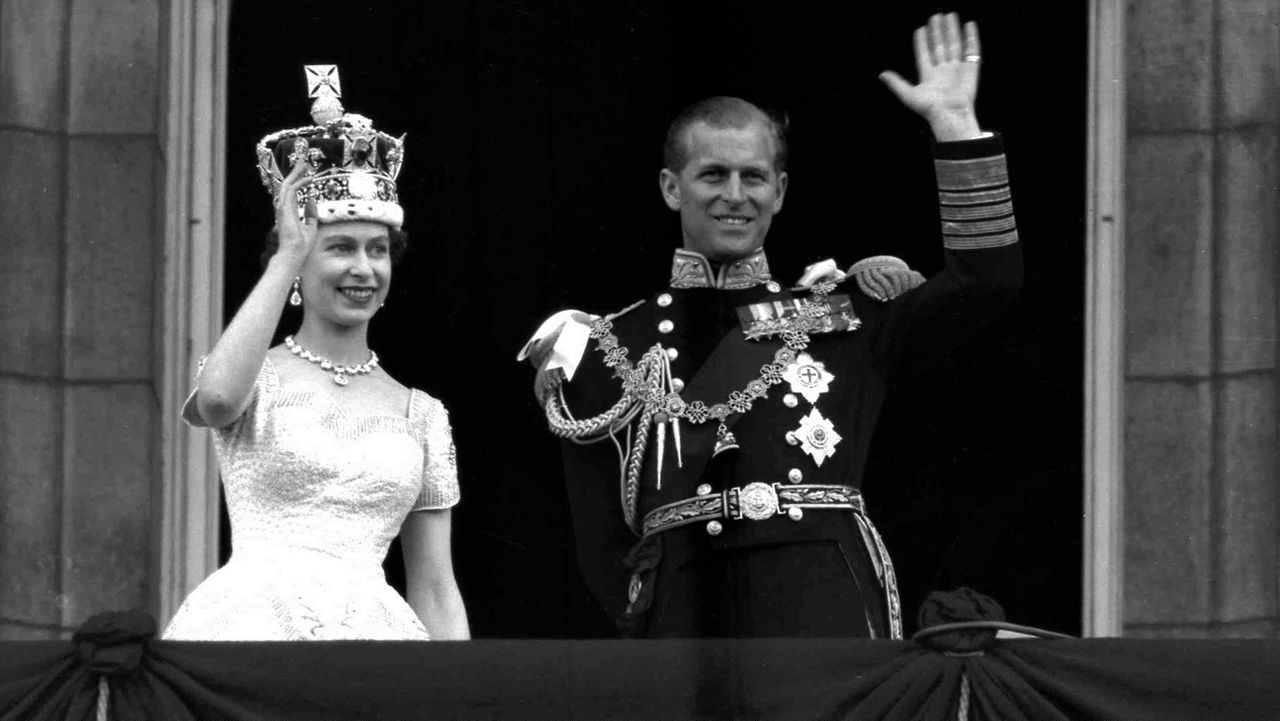Today, the world celebrates a significant milestone in the life of a prominent figure: the 70th birthday of the Head of the House of Bourbon-Parma, Carlo, Duke of Parma. This momentous occasion marks a remarkable achievement, as the Duke has dedicated his life to preserving the rich heritage and traditions of his noble lineage. Born on January 28, 1954, Carlo has been the head of the House of Bourbon-Parma since 2019, following the death of his father, Carlo Hugo, Duke of Parma.
Throughout his life, Carlo has been deeply committed to upholding the values and legacy of his family. He has worked tirelessly to promote the cultural and historical significance of the House of Bourbon-Parma, ensuring its continued relevance in modern times. As the Duke celebrates this major milestone, he is honored by his family, friends, and admirers around the world. This special day serves as a testament to his dedication and perseverance, as he continues to inspire future generations with his unwavering commitment to his noble heritage.
what are some key milestones in the life of the head of the house of Windsor

- April 21, 1926: The birth of Queen Elizabeth II, who would later become the longest-reigning British monarch.
- February 6, 1952: Elizabeth II becomes queen upon the death of her father, King George VI.
- June 2, 1953: Elizabeth II is crowned in a grand coronation ceremony at Westminster Abbey.
- 1960: Elizabeth II declares that her children and descendants would bear the surname Windsor, with exceptions for princes and princesses.
- 1977: Elizabeth II celebrates her Silver Jubilee, marking 25 years on the throne.
- 1992: Elizabeth II has what she describes as an "annus horribilis," or a "horrible year," amid marital issues and a fire at Windsor Castle.
- 2002: Elizabeth II marks 50 years of reign with her Golden Jubilee.
- 2012: Elizabeth II marks 60 years of her reign with a Diamond Jubilee.
- 2015: Elizabeth II surpasses Queen Victoria and becomes the longest-serving monarch in British history.
- 2022: Elizabeth II becomes the first British monarch to reach a Platinum Jubilee, marking 70 years as sovereign. She dies at Balmoral Castle in Scotland at age 96, with her eldest son becoming King Charles III.
what significant events marked Queen Elizabeth II's reign

- 1952: Ascension to Throne and Coronation
- Elizabeth became queen on February 6, 1952, following the death of her father, King George VI.
- Her coronation took place on June 2, 1953, and was the first to be broadcast live on television.
- 1955: Polio Vaccine
- Jonas Salk's polio vaccine was declared "safe, effective, and potent," marking a significant biomedical advance.
- 1957: Sputnik 1 Launch
- The Soviet Union launched the first artificial Earth satellite, Sputnik 1, marking the beginning of the Space Age.
- 1960: Birth Control Pill
- The U.S. Food and Drug Administration approved the world's first commercially produced oral contraceptive, the birth control pill Enovid-10.
- 1966: Aberfan Tragedy
- A coal mine accident in Aberfan, Wales, killed 116 children and 28 adults, prompting the queen to delay her visit to the site, which she later regretted.
- 1969: Apollo 11 Moon Landing
- Astronauts Neil Armstrong and Buzz Aldrin became the first humans to set foot on the moon.
- 1973: European Union Membership
- The United Kingdom joined the European Economic Community (EEC), which later became the European Union.
- 1989: World Wide Web
- British computer scientist Tim Berners-Lee distributed a proposal for the world wide web, revolutionizing global communication.
- 1997: Princess Diana's Death
- The queen faced criticism after Princess Diana's death, but she bowed as the princess' casket and called her "an exceptional and gifted human being".
- 2011: Ireland Visit
- Elizabeth became the first British monarch to make a state visit to Ireland since it was part of the United Kingdom.
- 2012: Diamond Jubilee
- The queen celebrated 60 years on the throne with a tour of Britain and visits to other Commonwealth nations.
how did Queen Elizabeth II's reign influence global politics
- Empire and Decolonization: Her reign witnessed the rapid decolonization of the British Empire, with 32 countries gaining independence from Britain during the first two decades of her rule. This process was marked by both cooperation and conflict, with the queen playing a crucial role in maintaining the Commonwealth as a voluntary association of independent nations.
- Cold War and Geopolitics: The queen navigated the complexities of the Cold War, maintaining good relations with both the United States and the Soviet Union. Her longevity allowed her to witness the end of the Soviet Union and the rise of new global powers like China.
- Monarchical Symbolism: Elizabeth II's ability to embody stability and continuity helped her monarchy thrive in an era of rapid change. Her "blank slate" persona allowed her subjects and the world to project their values and aspirations onto her, making her a powerful symbol of national identity and unity.
- Global Connections: The queen fostered strong connections with other nations, particularly within the Commonwealth. Her visits and engagements helped maintain a sense of moral and familial ties, emphasizing the importance of shared values and responsibilities.
- Moral Geopolitics: Her approach to global politics was deeply rooted in a moral perspective, emphasizing the connections between peoples and the obligations that came with them. This perspective was reflected in her support for the Commonwealth and her engagement with international issues like apartheid and decolonization.
 |
| Duke Christoph and Duchess Elisabeth |
queen Elizabeth II's impact on British foreign policy
- April 21, 1926: The birth of Queen Elizabeth II, who would later become the longest-reigning British monarch.
- February 6, 1952: Elizabeth II becomes queen upon the death of her father, King George VI.
- June 2, 1953: Elizabeth II is crowned in a grand coronation ceremony at Westminster Abbey.
- 1960: Elizabeth II declares that her children and descendants would bear the surname Windsor, with exceptions for princes and princesses.
- 1977: Elizabeth II celebrates her Silver Jubilee, marking 25 years on the throne.
- 1992: Elizabeth II has what she describes as an "annus horribilis," or a "horrible year," amid marital issues and a fire at Windsor Castle.
- 2002: Elizabeth II marks 50 years of reign with her Golden Jubilee.
- 2012: Elizabeth II marks 60 years of her reign with a Diamond Jubilee.
- 2015: Elizabeth II surpasses Queen Victoria and becomes the longest-serving monarch in British history.
- 2022: Elizabeth II becomes the first British monarch to reach a Platinum Jubilee, marking 70 years as sovereign. She dies at Balmoral Castle in Scotland at age 96, with her eldest son becoming King Charles III.
As we conclude our reflection on the 70th birthday of Carlo, Duke of Parma, we are reminded of the enduring legacy of the House of Bourbon-Parma. This remarkable milestone marks a significant chapter in the life of the Duke, who has dedicated himself to preserving the rich heritage and traditions of his noble lineage. Throughout his life, Carlo has been deeply committed to upholding the values and legacy of his family, ensuring the continued relevance of the House of Bourbon-Parma in modern times. As we celebrate this major milestone, we are honored to recognize Carlo's unwavering dedication to his noble heritage and his role as the head of the House of Bourbon-Parma.
As we bid farewell to this article, we are left with a profound appreciation for the significance of Carlo's life and legacy. His commitment to preserving the traditions of his family is a testament to the enduring power of noble lineage and the importance of honoring one's heritage. As we move forward, we are reminded of the importance of preserving our cultural and historical heritage, ensuring that future generations can continue to draw inspiration from the past. In this sense, Carlo's life and legacy serve as a powerful reminder of the significance of noble lineage and the importance of honoring one's heritage. We wish Carlo a happy 70th birthday and look forward to continuing to celebrate his remarkable life and legacy.
what were the key challenges Queen Elizabeth II faced during her reign
- Decolonization and the End of the British Empire:
- The rapid decolonization of the British Empire, which led to the independence of many countries, including India, Africa, and the Caribbean.
- Cold War and Geopolitics:
- Navigating the complexities of the Cold War, maintaining good relations with both the United States and the Soviet Union, and adapting to the rise of new global powers like China.
- Technological Advancements:
- Adapting to rapid technological advancements, such as the advent of television, the internet, and space travel, which transformed the way people lived and communicated.
- Social and Cultural Changes:
- Responding to significant social and cultural changes, including the rise of feminism, the civil rights movement, and the emergence of new cultural trends like rock 'n' roll and the Beatles.
- Personal Tragedies and Criticism:
- Dealing with personal tragedies, such as the death of Princess Diana in 1997, and facing criticism for her handling of the situation.
- Economic Crises:
- Presiding over several significant economic crises, including the 1973 oil embargo, the 1980s recession, and the 2008 global financial crisis.
- International Relations and Diplomacy:
- Maintaining good relations with other nations, including the United States, the Soviet Union, and the European Union, and navigating complex international issues like the end of the Cold War and the rise of new global powers.
- Internal Challenges:
- Managing internal challenges within the British monarchy, including the changing role of the monarch and the evolving nature of the royal family.



No comments:
Post a Comment